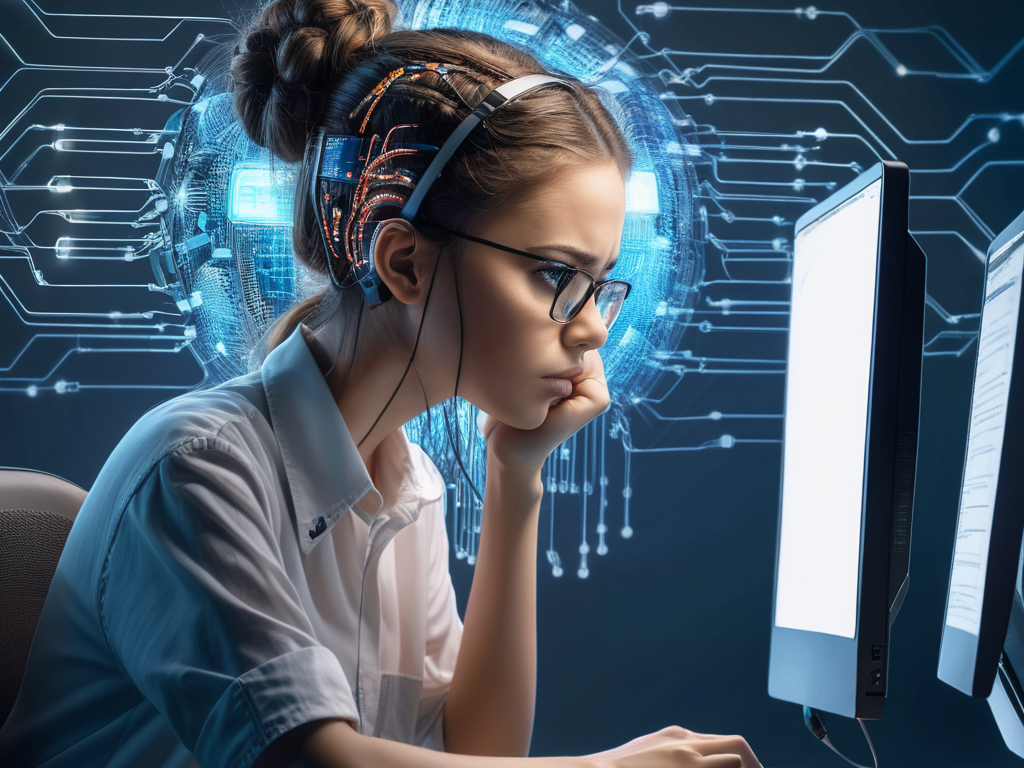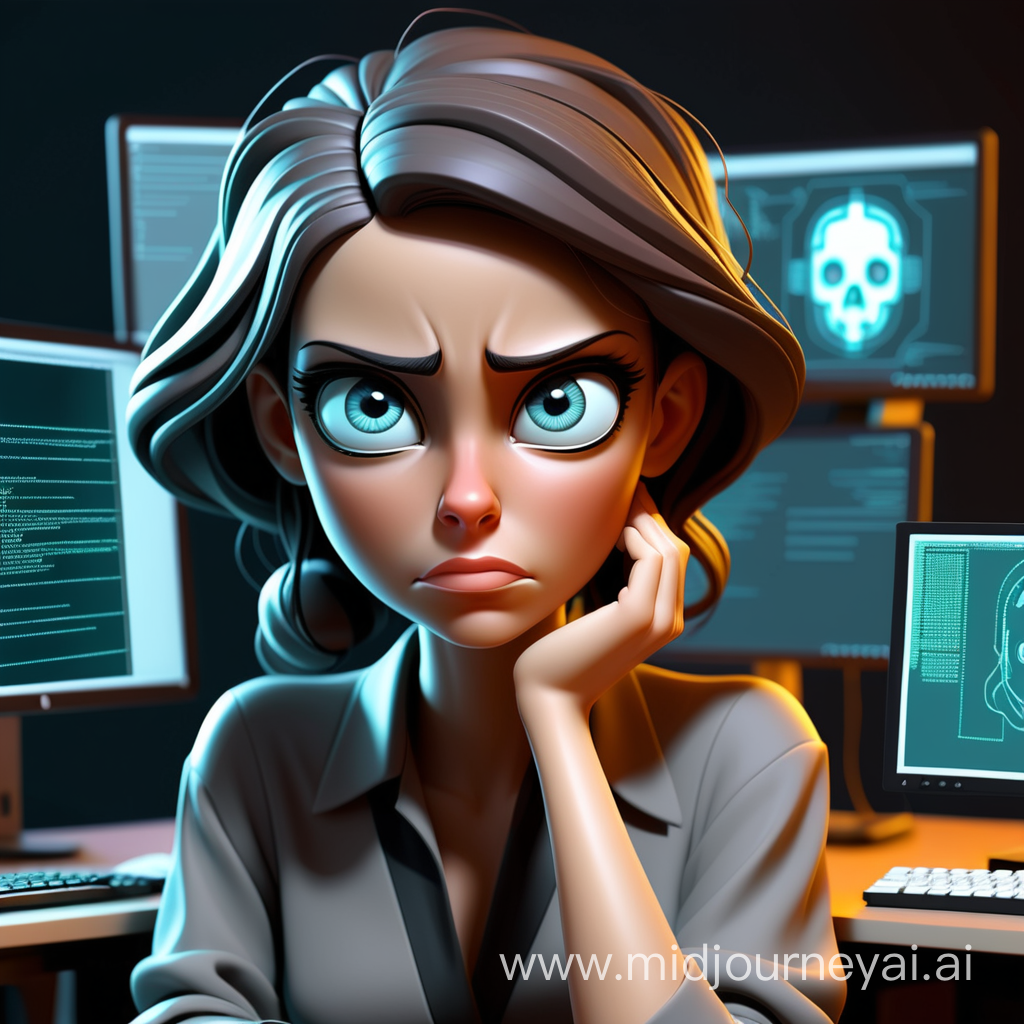In recent times, coding has been molding our world, changing constantly. But with the rise of artificial intelligence (AI), folks wonder: Will AI replace programmers?


In our rapidly evolving digital landscape, the integration of artificial intelligence (AI) into various industries has sparked discussions about its potential to reshape traditional roles. Among these is the field of programming, where AI’s capabilities raise questions about the future of developers. Will AI eventually render human programmers obsolete, or will it augment their skills and capabilities? This comprehensive guide aims to provide easy-to-understand insights into the role of AI in programming, its current applications, limitations, and future prospects.
Understanding AI in Programming:
AI in programming refers to the use of algorithms and machine learning techniques to automate coding tasks traditionally performed by humans. These tasks include code generation, debugging, optimization, and natural language processing (NLP) for programming. AI tools analyze patterns, data, and user inputs to streamline the software development process and improve efficiency.
Automated Code Generation:
AI-powered code generation tools leverage algorithms to analyze requirements and produce code snippets or entire programs. This automation accelerates development timelines, reduces errors, and enhances productivity. However, AI-generated code may lack the creativity and problem-solving skills inherent in human-written code.
Debugging and Optimization:
AI algorithms play a crucial role in identifying bugs, performance bottlenecks, and security vulnerabilities in codebases. Through automated analysis, AI-driven tools help developers improve software quality and efficiency. Despite these advancements, human intervention remains essential for addressing complex issues and making informed decisions.
Natural Language Processing (NLP) for Programming:
NLP technologies enable developers to interact with computers using everyday language, simplifying the coding process for beginners. These systems interpret human-readable instructions and translate them into executable code, lowering the barriers to entry for novice programmers. While NLP facilitates communication between humans and machines, understanding fundamental programming concepts remains crucial for effective collaboration.
The Rise of Low-Code and No-Code Platforms:
In recent years, the proliferation of low-code and no-code development platforms has democratized software development. These platforms empower users with limited programming knowledge to create applications using visual interfaces and pre-built components. While not strictly AI-driven, these platforms simplify the development process and foster innovation by enabling rapid prototyping and iteration.
Challenges and Limitations:
Despite the potential of AI in programming, several challenges and limitations must be addressed. AI-generated code may lack quality, readability, and originality, requiring human oversight and refinement. Additionally, AI algorithms struggle with context, adaptability, and understanding complex business logic, posing challenges in real-world applications. Ethical considerations, such as job displacement, algorithmic bias, and data privacy, also warrant careful examination to ensure that AI-driven technologies benefit society as a whole.
The Future of Programming:How Will AI Impact Programming Jobs?


The future of programming lies in the symbiotic relationship between humans and AI. While AI automates repetitive tasks and enhances productivity, human programmers bring creativity, critical thinking, and domain expertise to the table. By embracing AI as a tool to augment their skills and capabilities, developers can focus on high-level tasks, such as problem-solving, innovation, and collaboration. As AI technology continues to evolve, programmers must adapt, acquire new skills, and cultivate a growth mindset to thrive in an ever-changing digital landscape.
In conclusion, AI has the potential to revolutionize the field of programming by automating repetitive tasks and enhancing productivity. However, it is unlikely to replace human programmers entirely. By understanding AI’s capabilities and limitations, developers can leverage its potential to streamline development processes, improve software quality, and drive innovation. As we navigate the complexities of an AI-driven future, collaboration between humans and machines will be paramount in shaping the future of programming.
References:
- Brownlee, J. (2021). Deep Learning for Computer Vision. Machine Learning Mastery.
- Géron, A. (2019). Hands-On Machine Learning with Scikit-Learn, Keras, and TensorFlow. O’Reilly Media.
- Russell, S., & Norvig, P. (2021). Artificial Intelligence: A Modern Approach. Pearson.
- Microsoft. (2020). Introducing Azure Machine Learning. Microsoft Documentation.
- OpenAI. (2022). GPT-4: The Next Step in Language Generation. OpenAI Blog.
- Kuhn, M., & Johnson, K. (2019). Applied Predictive Modeling. Springer.
By embracing AI as a tool to augment their skills and capabilities, developers can drive innovation and shape the future of programming in a rapidly evolving digital landscape.
Top 20 AI Tools to Enhance Your Productivity 2024
WordPress SEO Checklist for 2023: How to Stay Ahead of the Game
Blogger & SEO Expert | Demystifying AI
“Maherun believes in making AI and SEO accessible to everyone, regardless of their technical background.”
Email: [ahmedmaherun2024@gmail.com]

